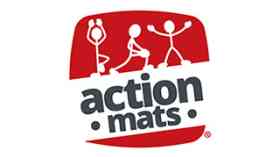Action Mats create resources for primary and early years children focussing on movement skills and active learning.
Supplier Focus
Latest Supplier News
Borg & Overström is a UK manufacturer of premium drinking water solutions. For over 20 years Borg & Overström has developed sustainable, bottle-less, hygienic, drinking water dispensers with the aim to provide exceptional, safe, self-service drinking water into schools, universities, workplaces and communal spaces.

 Following the draft legislation on provision for children and young people with special educational needs last year, the introduction of the new Ofsted inspection framework, the new Teacher’s Standards and the newly released SEN Indicative draft Code of Practice, special educational needs provision is facing the biggest reform in 30 years.
Following the draft legislation on provision for children and young people with special educational needs last year, the introduction of the new Ofsted inspection framework, the new Teacher’s Standards and the newly released SEN Indicative draft Code of Practice, special educational needs provision is facing the biggest reform in 30 years. 








